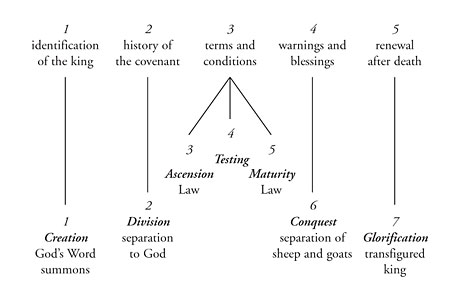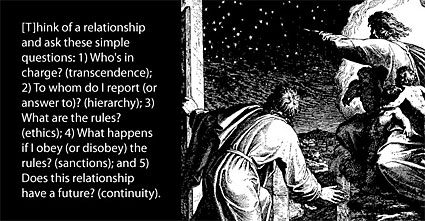Sep
3
2010
or Insanity and Spiritual Songs

Van Gogh’s work has been regarded by some as “hallucinatory,” however his letters show that few artists were as intelligent and rational. His work was not the product of his dark times but of his struggle against them.
“I am feeling well just now… I am not strictly speaking mad, for my mind is absolutely normal in the intervals, and even more so than before. But during the attacks it is terrible—and then I lose consciousness of everything. But that spurs me on to work and to seriousness, as a miner who is always in danger and makes haste in what he does.” [1]
Continue reading
Comments Off | tags: Covenant Theology, Evolution, Hebrews, Jeremiah, John Piper, Martyrdom, Mission, Noah, Paul, Persecution, Poetry, Psalms, Ray Sutton, Van Gogh, Vindication | posted in Bible Matrix, Biblical Theology, Christian Life, Creation, Quotes
Mar
30
2010
or Sword Swallowers

Part 1 is here.
Then the mother of Zebedee’s sons came to Him with her sons, kneeling down and asking something from Him. And He said to her, “What do you wish?” She said to Him, “Grant that these two sons of mine may sit, one on Your right hand and the other on the left, in Your kingdom.” But Jesus answered and said, “You do not know what you ask. Are you able to drink the cup that I am about to drink, and be baptized with the baptism that I am baptized with?” They said to Him, “We are able.” So He said to them, “You will indeed drink My cup, and be baptized with the baptism that I am baptized with; but to sit on My right hand and on My left is not Mine to give, but it is for those for whom it is prepared by My Father.” (Matthew 20:20-23)
When we say “Amen,” we’d better mean it. It is a reception of the Covenant, binding us to it legally for better or worse. Ray Sutton writes:
Continue reading
Comments Off | tags: Baptism, Feasts, Herod, Isaiah, James Jordan, Jericho, Luke, Ray Sutton | posted in Biblical Theology, The Last Days, Totus Christus
Sep
22
2009
or Understanding Dominion by Covenant

The New Covenant is not about salvation. It is about dominion. Before you call in the inquisitors, have a look at this diagram from my book:

Continue reading
Comments Off | tags: AD70, Caleb, Covenant Theology, Dominion Theology, Feasts, Firstfruits, Gnosticism, Joshua, Judges, Moses, Passover, Postmillennialism, Ray Sutton, Revelation, Solomon | posted in Against Hyperpreterism, Biblical Theology, Christian Life, The Last Days, Totus Christus
Sep
2
2009

“Look now toward heaven, and count the stars if you are able to number them.” And He said to him, “So shall your descendants be.” And he believed in the LORD, and He accounted it to him for righteousness.
—Genesis 15:5-6
Abraham didn’t sleep in on the day he was to take his beloved son, his only son, to Moriah, kill him and offer him as an ascension. He got up early. By this stage in the narrative, Abraham had been tried and tested many times, but this seems just a little too keen.
Continue reading
Comments Off | tags: Abraham, Covenant Theology, Doug Wilson, Faith, Hebrews, Isaac, Martyrdom, Peter Leithart, Ray Sutton | posted in Christian Life
Jul
24
2009
 Eric Rauch describes one of the greatest theological discoveries of our time, one which hardly anyone has heard of yet after 20 years.
Eric Rauch describes one of the greatest theological discoveries of our time, one which hardly anyone has heard of yet after 20 years.
by Eric Rauch
One of the enduring Latin phrases of the Protestant Reformation is the impressive sounding ecclesia semper reformans, semper reformanda. In plain English, this means “the church is always reformed and always reforming.” This simple principle is one that is most often forgotten in modern discussions about theology, where a surefire way to end a disagreement is to pull out something written by Luther, Calvin, or even Spurgeon and show that they said much the same thing. Although the Reformers themselves were quite emphatic that they were not the final word (hence the “always reforming”), contemporary Christianity seems to be convinced that dead theologians should be the authoritative standard of interpretation.
Continue reading
Comments Off | tags: Covenant Theology, Ray Sutton, Reformers | posted in Biblical Theology































